Paper Series: On Belonging in Europe
This series constitutes our first exploration of different elements of belonging in Europe. Without pretending to be exhaustive, these essays bring together diverse voices that illuminate what othering and belonging mean—and how they manifest—within the European context. In both exploring dimensions of othering and practices of belonging in the region, these papers seek to expose the areas that most urgently demand our attention—where othering & marginalization are growing—as well as offer valuable insights from those already working towards belonging in Europe, with concrete learnings for those in North America and beyond.
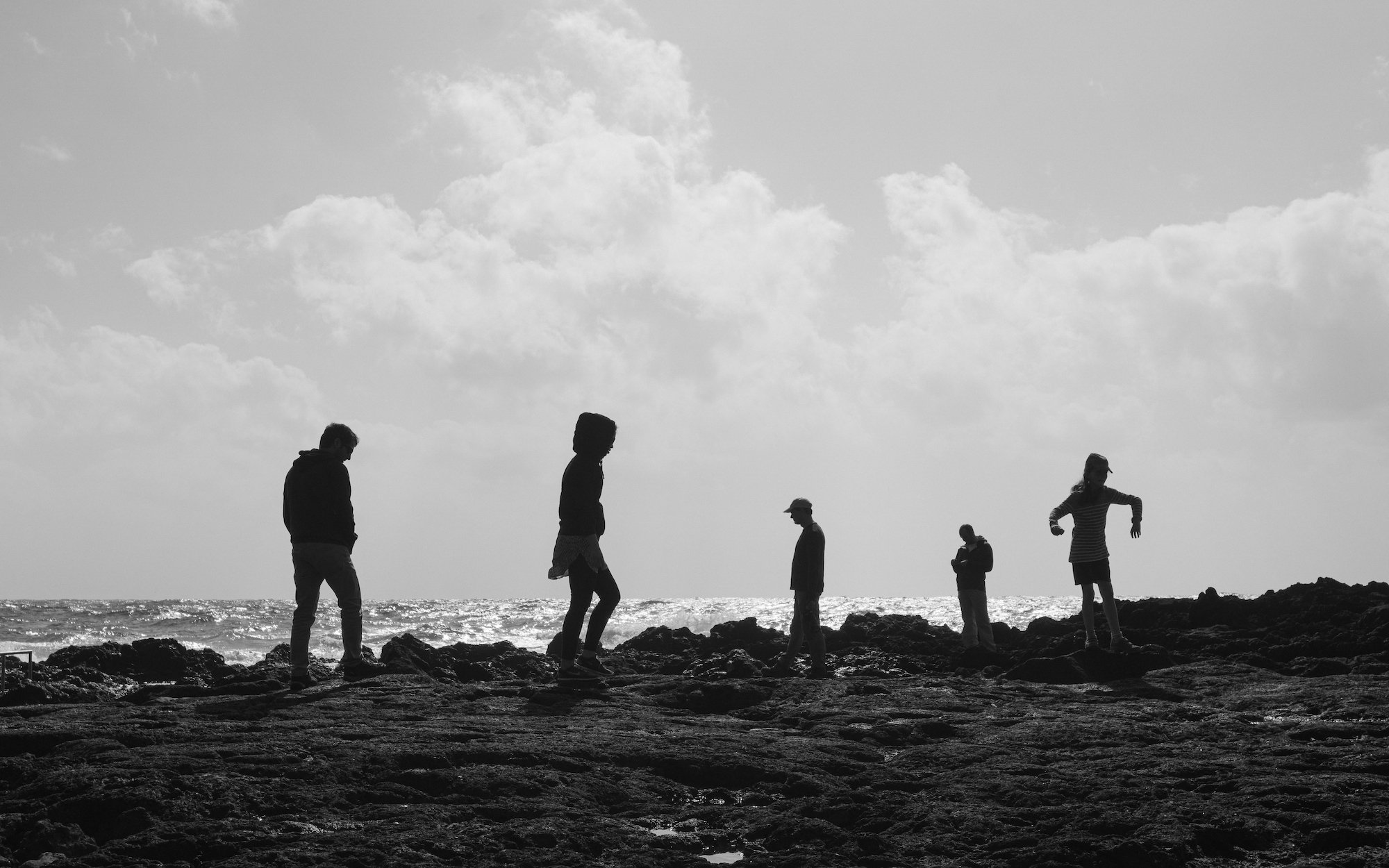
Othering and Belonging in a Europe in crisis: narratives, identities, and the New-Old divide
Times appear to be changing as the European periphery seems to be leading the way to a social Europe, or at least strongly advocating for one; trying to make sure that policies are accompanied by belonging narratives that can deactivate the impulse to other. These policies and narratives should make clear that the Union may be in the making, but citizens from all Europe are in it together and the future of Europe depends on how much they feel they belong. For that, you also need the periphery (and its peripheries) to feel included and this is probably the next and most pressing challenge.

The ‘polarisation’ distraction
It’s time to look beyond a limited concept, that obscures at least as much as it reveals.
To go beyond polarisation as a concept, we need to transcend its limits - by using a more contemporary and nuanced psychology to connect the varied social trends of recent decades - including technological and media change - with the range of major social challenges that have come to the fore in that time.
With a broader lens like this, we might start to see the real root causes in our common social ills, how they are connected–and what would be necessary to truly address them. Polarisation cannot offer us that–but we have the tools to begin creating something better that can.

Belonging despite the state of exception: the LGBTQ+ counterpublics in Poland after 2015
“Othering'' in this context, against LGBTQ+ persons and groups, basically reduces people to some abstract, undefined “ideology.” Belonging, on the other hand, is formed in solidarity practices – in the discussions and support actions around the “Atlas of Hate," in various queer and LGBTQ+ marches in big and small towns of Poland, and in legal and media support. In some municipalities, like those of Poznań, Warsaw, and Gdańsk, the solidarity of opening the “LGBTQ+ - zones” was emphasized with actions like the huge Palace of Culture in Warsaw bearing the rainbow colors in the Pride month and on other occasions.
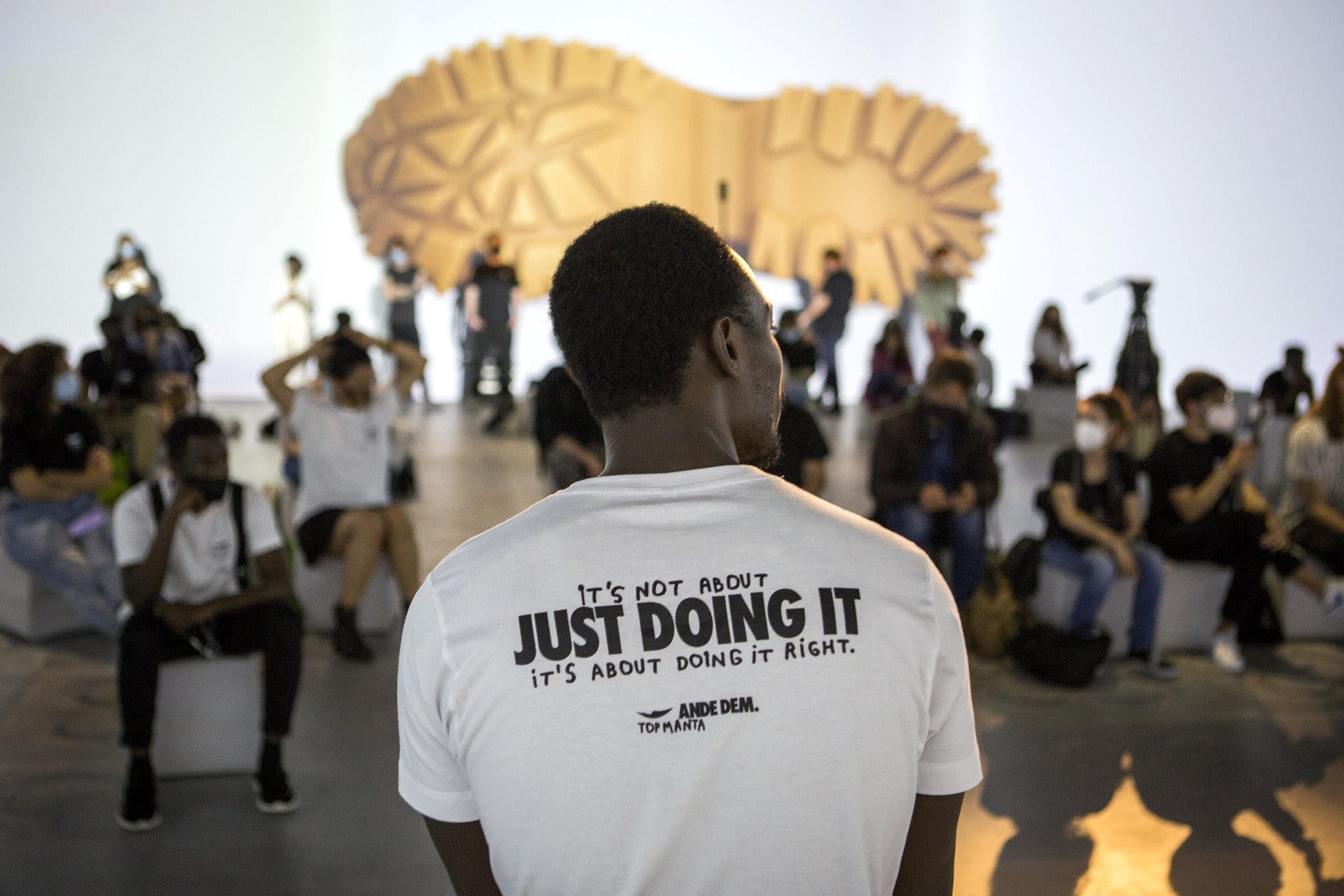
A rebellious brand born in Barcelona sways the weight of language
The success of Top Manta is a rebuke to Spaniards who think African immigrants do not belong. It has proved that it is much more than just a clothing brand. It is a movement–and one that is spreading to other cities; street vendors have opened a store called Pantera in the neighborhood of Lavapiés in Madrid. The store offers a solution to escape criminalization and precariousness while transforming and dignifying the meaning of the pejorative term.
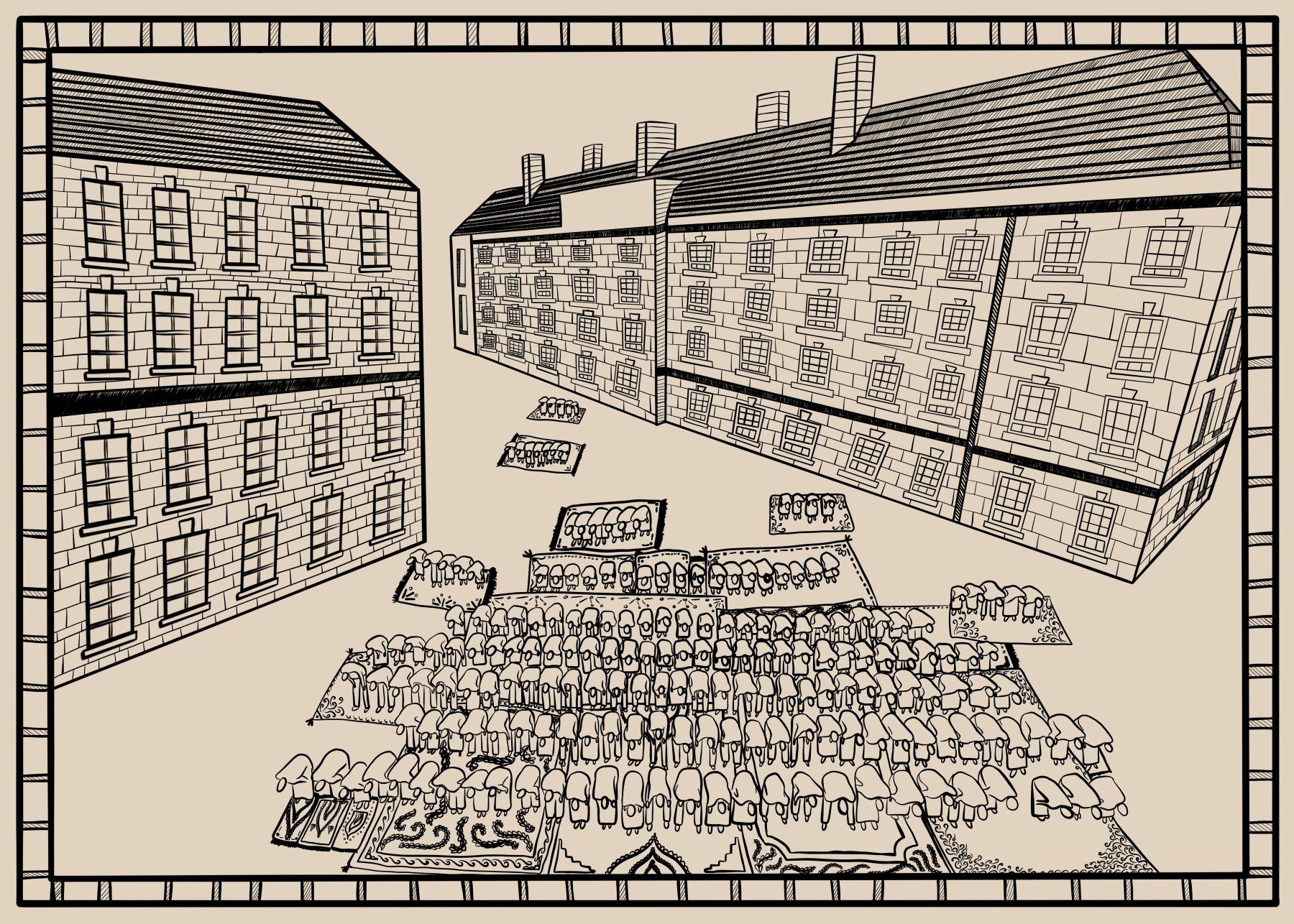
Citizens not Consumers or Subjects: Cultivating a new story of society in Brexit Britain
My overriding sense after seven years of working with these ideas, and particularly having enriched my understanding further by integrating them with those of the Othering and Belonging Institute, is an ever deeper conviction that the current state of play cannot hold for much longer. Britain will either step into the Citizen Story, embracing the truth that all of us are smarter than any of us and the tools that allow that truth to be turned into action, or - as happened after the hopeful, visionary moment of the Putney Debates - this country will return to a state of oppression, othering, and subjection.
I know which future I am working for.

Radical Kindness: Bridging Difference and Inspiring Connections During the Covid-19 Pandemic
We define radical kindness as a type of kindness that reaches out across differences and may involve some form of disruption, discomfort, or transformation. It is distinct from random and relational acts of kindness, which tend to be carried out towards those who people perceive as belonging to the same group as themselves. In contrast, radical kindness refers to those acts and activities that intentionally seek to build bridges across differences, develop solidarity and shared ground, and promote social connection between different groups and communities.

Motherwork in Sweden's racialized suburbs
The concept of “motherwork” is used to make sense of these women’s labour. Motherwork is the labour of mothering, and here the concept is expanded to include the community-based activities of the Swedish-Somali mothers. Mothering as a verb offers us a way of thinking about the activities mothers engage in as a practice (a doing), rather than given or natural.
I use “mother” without any assumption of a biological essence. A mother does not need to have a specific gender or biological children to be considered one. Rather, a mother is anyone who engages in the practice of mothering– the meanings we place on who a mother is shifts over time and place, and are shaped by intersecting identities.

Fællesskab and Belonging
In Denmark, fællesskab is one of the most important values of their society. It is a collection of people that are bound together by something they share in common, something they agree with, have the same view on, or an interest they share or do together.
Fællesskab can be seen in all aspects of Danish life, from foreningsliv (“association life”) which are groups of people formed around different hobbies or interests–from the classrooms, to the workplace or family life.
The issue in other cultures is that, while we think about the wellbeing of our children, we rarely think about the wellbeing of the group and what effect that has. In Denmark, this focus on the group is seen as absolutely fundamental to the wellbeing of the individual. Their entire educational system is structured on this. Danes believe children need to learn to think about others too, not just themselves. This is how we create a better society

Healing division through exploration of shared values
If division is to be healed – and if, for that matter, we are to achieve the depth and persistence of public demand necessary for proportionate action on inequality, structural racism or climate change – then it will be because we begin to see how the neoliberal project engineers a society in which care for others, community cohesion, and wellbeing are all suppressed.
This may seem daunting, but there are huge grounds for hope. Our values are on our side. We need simply to assert what is most important to us and to recognise these same priorities in our fellow human beings.
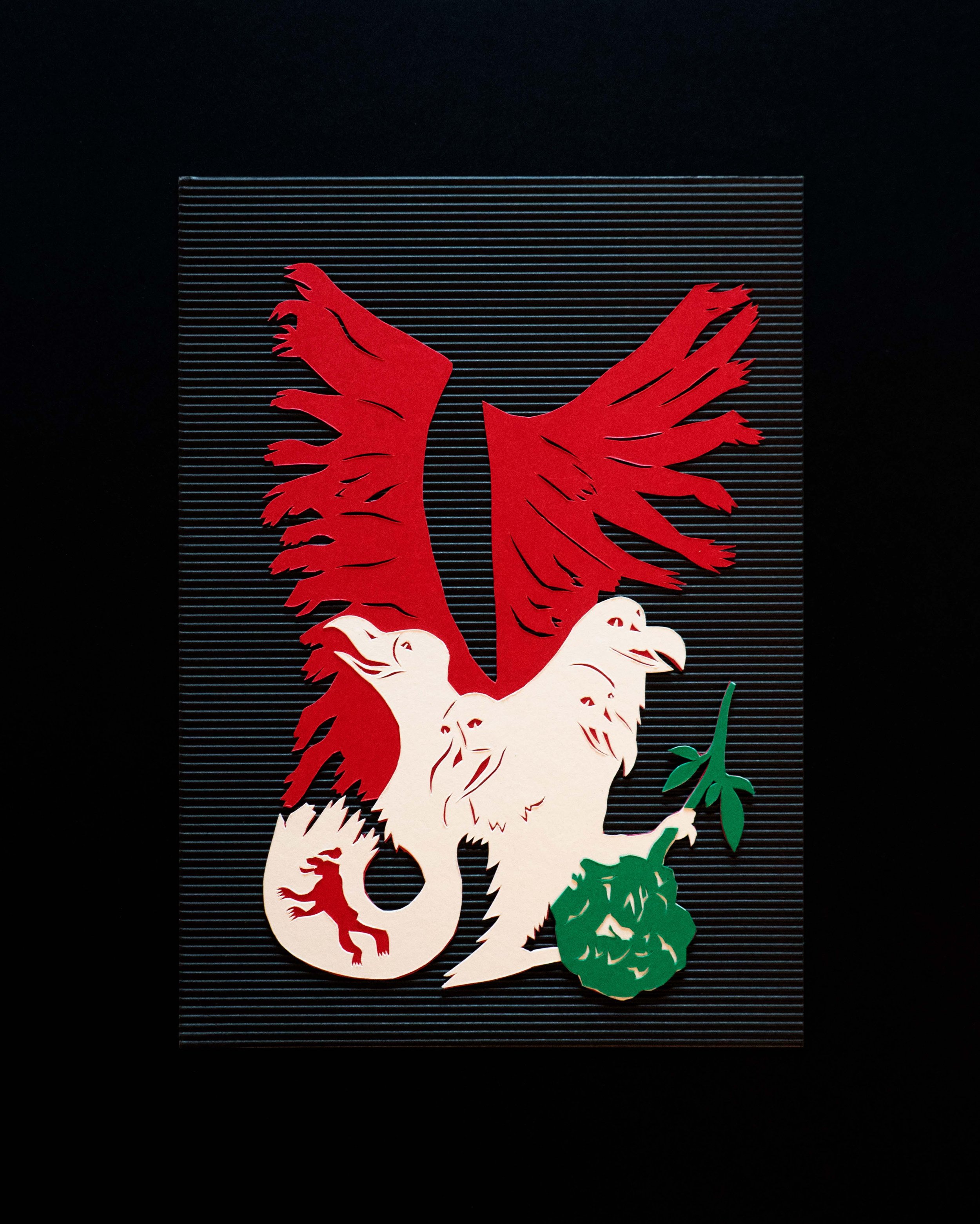
Belonging in Berlin: an exploration of Syrian refugee-led organisations and volunteerism during COVID-19
“But what does the concept of belonging mean to refugees? How do refugees create feelings of belonging for themselves and foster it for others? Most interesting for us, what role does refugees’ civic engagement, such as self-organisation and volunteering, play in fostering belonging in Europe today?”

Creating belonging for migrants through human rights-based narrative change
While one good deed may seem like a drop in the ocean, its ripple effect can carry immense potential to amplify in reach and impact. The more we unite around our shared vision and values, seek out and cultivate kindness and welcoming behavior at the local level, create spaces and enable diverse identities to listen to each other and reach common goals, as well as persistently share these stories of a larger ‘us’, the more likely we will succeed in diminishing skepticism, shifting narratives and realizing a future where all migrants’ rights are respected. A future in which we can all belong.
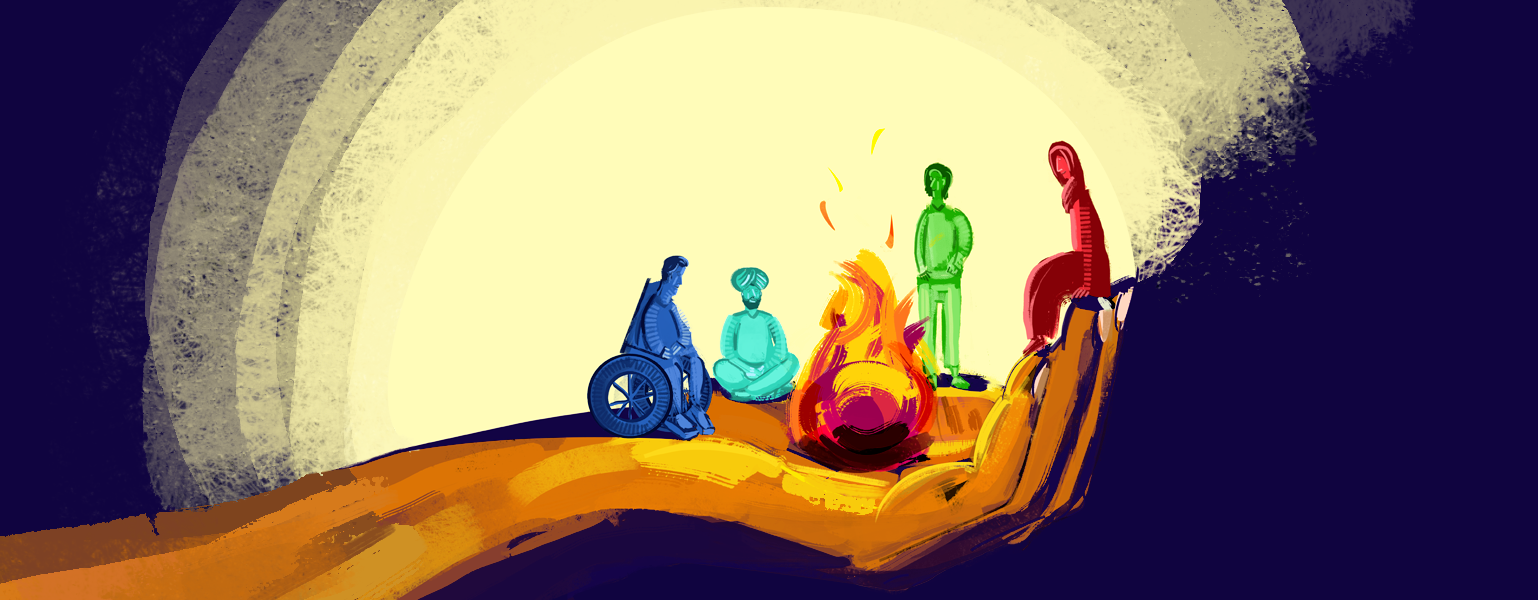
On Belonging: An Introduction to Othering & Belonging in Europe
“This essay serves as a backdrop to the papers submitted for this volume. These papers cover topics ranging from motherhood-driven civic engagement by migrant mothers in Sweden, to “togetherness” oriented childhood education in Denmark, to refugee-led Covid-19 responses in Berlin and their impact on the experience of integration. As these papers draw upon a conception of belonging presented or prompted by us, we wish to describe the contours of our understanding of the term so the papers make sense in context. Our presentation is not exhaustive, but should be sufficient to the goal of making the papers comprehensible in their own terms.”

Foreward
“An encompassing and embracing experience of belonging may be one of the few utopian ideals that can — and, indeed, does — exist in the world. It is a feeling of intentional togetherness that anyone, anywhere can experience mentally, physically, and spiritually—its absence can also be felt acutely. Many are explicitly made to feel that they do not belong. Still, the possibility to feel belonging exists for everyone. Belonging is a multi-faceted and beautiful experience, differentiated from diversity or inclusion in that it is something we can all contribute to–a collaborative effort requiring a whole society approach. By definition, belonging includes the agency to contribute to the evolution or definition of that to which we belong or seek to belong.”
